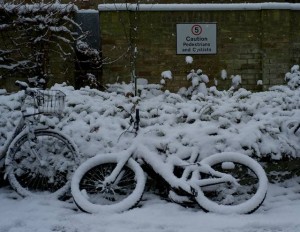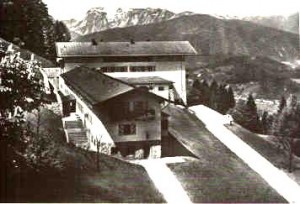There are many extraordinary aspects of the Bernard Madoff $50 billion Ponzi scheme, but the strangest of all is that Madoff was rumbled 11 years ago by Harry Markopolos, an investor-turned-investigator who warned other investors that Madoff was running a Ponzi scheme. Mr Markopolos is a sharp operator — an experienced trader who saw right through the Madoff operation. But the really shocking thing is to discover that he presented his data and conclusions to the Boston office of the Securities and Exchange Commission in May 1999. I’ve just come on the document he presented then, and it makes astonishing reading. It’s detailed, informed and very closely argued. He highlights lots of what he calls ‘Red Flags’, any one of which ought to have triggered the regulator’s interest. And yet nothing happened.
In due course we will find out why. But in the meantime there’s been speculation that if Mr Markopolos had had a blog, then Madoff would have been stopped in his tracks much earlier — and a lot of investors might have been spared financial ruin. “Perhaps”, muses Ray Pellecchia on his blog, for example, “Mr. Markopolos lacked only an effective medium to communicate his warning.” He proposes a thought experiment: What would have happened if Mr. Markopolos had blogged his analysis? That is, what if he had posted the entire piece on a blog, under his name or a pseudonym?
“We’ll never know the answer, but here’s what I think might have followed:
• The post would have quickly spread far and wide among traders and investors. It’s a small Street, as the saying goes, and an analysis raising questions about the investment results of a prominent name such as Madoff would have sent e-mails flying.
• Those who had money invested with Mr. Madoff — or who were thinking of investing — would have done the same math that Mr. Markopolos had done, undoubtedly reaching the same conclusion. The resulting rush to pull money out and the avoidance of adding new money would have meant a faster end to the alleged Ponzi scheme.
• If indeed there were some fund managers who had invested with Madoff suspecting that something was amiss but going along for the lucrative ride, as Paul Kedrosky has suggested, they would have been forced to confront the newly unveiled facts. “
It’s a nice thought, but it ignores some harsh realities about corporate and legal life. To be fair, Mr Pellecchia acknowledges some of them.
“Would Mr. Madoff have initiated some sort of “retribution” against Mr. Markopolos, as the Journal says that Mr. Markopolos feared? Even an anonymous blogger can be identified. Again, it’s impossible to know. We do know that Mr. Madoff was chairman of Nasdaq, head of one of its largest market-making firms, and that he and others at his firm had advisory roles with regulators. Could Mr. Markopolos have been blackballed by the Street or subjected to greater regulatory scrutiny because he was taking on an industry leader? Mr. Markopolos also could have been sued for libel, and even if his analysis ultimately would have been proven factual and not libelous, defending a lawsuit is an expensive proposition. But it would seem unlikely that Mr. Madoff would risk exposing his alleged scheme by bringing a lawsuit. All in all, however, it’s easy to see how the possibility of regulatory retribution or a lawsuit would have had a chilling effect on a decision to go public. A whistle blower would need some wherewithal to blog his allegations.”
He certainly would. Just think about it for a moment. At the height of the Wall Street boom, when cretins like Madoff were worshipped as supermen by the media as well as by legislators and regulators, a guy publishes a blog post alleging that the Chairman of the Nasdaq is running the biggest Ponzi scheme in history. Before the poor schmuck can get out of bed the next morning, lawyers from a Wall Street law firm (@ $600+/hour) have had Google/Blogger take down the blog, have had his ISP disconnect him from the Net, and are threatening him with a lawsuit that will bankrupt not only him but everyone in his family unto the fourth generation.
So we need a dose of reality here. If you think the RIAA are nasty, then you’ve never seen real corporate thugs in action. I’ve been threatened twice with libel actions and, believe me, it ain’t funny. We live in a world in which all it takes to persuade an ISP to take down your site is a threatening letter from a lawyer. What Mr Pellecchia’s thought experiment highlights is that while the blogosphere is a great thing, it also has its limitations. There are times when only a big media organisation — a corporation like the BBC or a newspaper like the Guardian, New York Times or Washington Post — has the muscle and financial stamina to take on someone like Madoff in his prime.
Thanks to Hap for the link which started me off on this rant.


